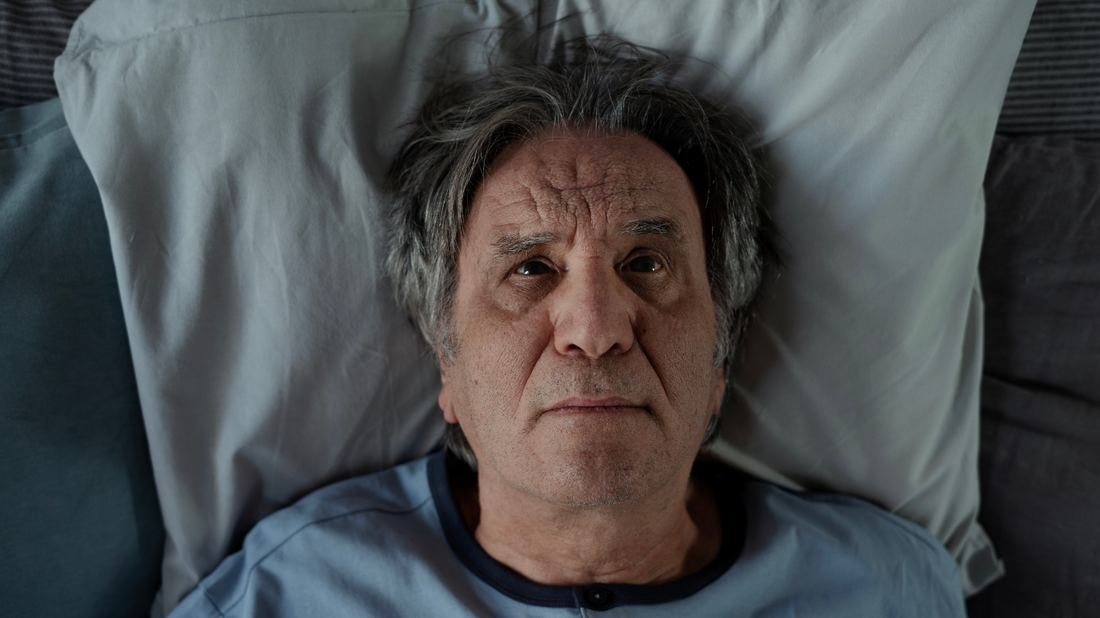
The Most Common Causes of Nocturia in Elderly Males
Waking up to pee at night may seem harmless at first, but for elderly males, this condition, known as nocturia, can lead to poor sleep, fatigue, and even increased risk of falls. Many men wonder, "Why do I pee so much at night?" or "Is this normal?" The truth is, nocturia becomes more common with age, and it often signals underlying health or lifestyle issues that can and should be addressed.
In this guide, we’ll break down what nocturia is, the common causes of nocturia in elderly males, how it's linked to sleep apnea, and offer practical tips to manage and improve frequent urination at night. We'll also introduce a supportive solution for those who need a safer, easier way to deal with nighttime urination.
What Is Nocturia

Nocturia is a condition where individuals wake up one or more times during the night to urinate. While it may seem like a minor inconvenience, frequent overnight urination can disrupt the sleep cycle, affect mood and memory, and even contribute to nighttime accidents or falls. Most people ask, “How many times is normal to urinate at night?” The answer is once per night is typical, but two or more trips to the bathroom can indicate nocturia.
Elderly men are especially susceptible due to changes in the bladder, prostate, and sleep patterns. It's not just about drinking too much water before bed; several physiological factors contribute to this condition.
Causes of Nocturia in Elderly Males
So, what are the frequent nocturnal urination causes in older men?
1. Prostate Enlargement (BPH)
As men age, the prostate tends to enlarge, a condition called Benign Prostatic Hyperplasia (BPH). This can compress the urethra and interfere with the bladder’s ability to empty fully. The result? A constant urge to urinate at night and waking up frequently.
2. Reduced Bladder Capacity
Aging can also reduce bladder elasticity, meaning it holds less urine before triggering the need to go.
3. Nocturnal Polyuria
This refers to the overproduction of urine at night. It’s often due to hormonal changes, especially a drop in the antidiuretic hormone that typically limits urine production during sleep.
4. Chronic Conditions
Conditions such as diabetes, heart failure, and kidney disease often lead to excessive urination at night. High blood sugar, for example, causes the kidneys to pull extra fluid from the body.
5. Lifestyle and Diet
Fluid intake timing, especially alcohol or caffeine, can increase nighttime urination. Many wonder, “Does sugar make you pee more at night?”, and the answer is yes, particularly if blood sugar is not well managed.
Nocturia and Sleep Apnea: What Older Adults Should Know
One of the lesser-known causes of nocturia is sleep apnea. In people with obstructive sleep apnea, breathing stops temporarily during sleep, leading to a spike in blood pressure and the release of atrial natriuretic peptide (ANP), a hormone that signals the kidneys to produce more urine.
As a result, waking up to pee in the night can be an indirect sign of undiagnosed sleep apnea. If you or a loved one also snores or experiences excessive daytime fatigue, it’s worth getting a sleep study done.
How to Manage Nocturia in Elderly Adults
The first step to managing nocturia is identifying what’s causing it. Once medical conditions are ruled out or managed, lifestyle changes can make a big difference:
- Adjust fluid intake timing: Avoid fluids 2–3 hours before bed
- Limit alcohol and caffeine: Especially after 6 p.m.
- Elevate your legs in the evening: Helps reduce fluid retention
-
Track bathroom habits: Log how often you go at night
-
Talk to your doctor: Medications can help reduce symptoms
For many seniors, how to stop peeing at night starts with improving bedtime routines and working closely with a healthcare provider.
Improving Nocturia in Older Adults with Natural Strategies

If you're wondering how to stop peeing at night naturally, there are effective habits and routines you can implement:
- Pelvic floor exercises: Strengthen the muscles that support bladder control
- Bladder training: Gradually increase the time between bathroom visits during the day
- Choose the best sleeping position for nocturia: Some find that sleeping with their legs slightly elevated reduces nighttime urgency
-
Reduce sodium and sugar intake: Both can influence fluid retention and urine production
-
Manage weight and blood pressure: Obesity and hypertension are associated with nocturia and sleep apnea
These holistic strategies are especially helpful for those who want to stop waking up to pee without relying entirely on medication.
A Practical Solution: Sleep Better with the SleepPee Urine Pot
While diet, lifestyle, and medical treatments can help manage nocturia, sometimes the most effective solution is simple: make nighttime urination safer, quieter, and less disruptive. That’s exactly what the SleepPee urine pot was designed to do.
Crafted specifically for men who wake frequently at night to urinate, the SleepPee is a bespoke, spill-proof bedside urinal that lets you relieve yourself without leaving the warmth of your bed. No more disorientation, risk of falling, or cold trips down the hallway. Instead, you wake, go, and return to sleep in seconds—often without fully waking up.
Key benefits of using the SleepPee include:
- Minimize fall risk by avoiding nighttime bathroom trips
- Reduce sleep disruption for both you and your partner
- Stay hydrated in the evening without worry
- Avoid joint pain or aggravation from getting out of bed
- Store discreetly using the mattress-mounted bracket
- Use easily in total darkness, thanks to its glow-in-the-dark lid
With a thoughtfully tapered non-splash neck, ergonomic handle, and years of user testing, the SleepPee is more than just a portable urinal for men—it’s a game-changing sleep tool for anyone dealing with frequent urination at night.
If you’re ready to sleep longer, live longer, and take control of your nights, try the SleepPee urine pot today and wake up rested, safe, and refreshed.
